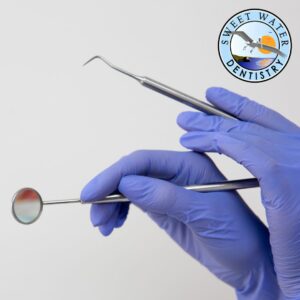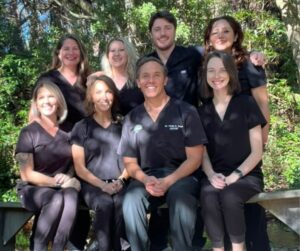How Do You Get Implants When You Can’t Afford Them?
Have you ever found yourself in a situation where you need dental implants but worry about the cost? You are not alone. Dental health is crucial, but sometimes the finances necessary can seem like a barrier you cannot overcome. It’s a common dilemma, but there are multiple approaches to consider that could make implants more affordable.
Understanding Dental Implants
Dental implants are artificial teeth used to replace missing teeth. They are anchored into the jawbone, providing a foundation that feels and acts like natural teeth. The process often involves several steps, including surgery and recovery time, and requires a tailored approach to suit your specific needs.
Components of Dental Implants
A dental implant comprises three parts: the implant, the abutment, and the crown. These parts work together to mimic the look and functionality of a real tooth. The implant itself is a metal post, often titanium, that is embedded into the jawbone. The abutment fits over the implant and supports the crown, the visible part of the implant.
Why High Costs?
The procedure involves specialized planning, surgery, and materials. The process demands time from skilled professionals. Dentists possess significant expertise, and their equipment is advanced, adding to the implant’s cost. Each patient’s case is unique, demanding personalized attention to detail.
Exploring Financial Solutions
It’s easy to feel overwhelmed by the price tag of dental implants. However, several strategies could help manage costs or make payments more feasible.
Dental Insurance
Begin by checking your dental insurance. While many dental plans do not cover full implant costs, they might cover some aspects, like crowns or consultations. Contact your insurance company for a detailed understanding of what is included.
Financing Options
Dentists often offer financing plans to break down the total cost into manageable monthly payments. Sweet Water Dentistry, for example, may assist in this regard. Just ask about their financing options at your next visit and consider discussing any potential budget constraints upfront.
Medical Loans
Consider applying for a medical or personal loan. These loans specifically fund healthcare expenses. Shop around for competitive interest rates and favorable repayment terms. Companies like CareCredit offer healthcare credit cards that can also ease upfront costs.
Government and Nonprofit Assistance
In some cases, government programs or nonprofits may offer financial assistance or subsidized dental care.
Medicaid and Medicare
While coverage varies, Medicaid and Medicare sometimes cover dental procedures, including implants, if they qualify as medically necessary. Inquire with a local Medicaid or Medicare office to explore this possibility.
Nonprofit Organizations
Search for programs through nonprofit organizations focused on dental care assistance. These might provide grants or lower-cost options for those eligible. Research to find suitable programs in your area or online.
Educational Institutions
Dental schools may offer reduced-priced services by students under expert supervision. These programs allow students to gain experience and can significantly lower costs. Not only do you save money, but you also contribute to a student’s education.
The Process at Dental Schools
Start by contacting a local dental school to ask about their implant services. Do expect longer appointment times due to the educational setting. However, the reduced cost could be well worth the added time.
Community Clinics
Community clinics offer dental services at reduced rates, often on a sliding scale based on income. Explore whether local clinics offer dental implants or referrals to affordable specialists.
Finding a Nearby Clinic
Use online resources or community health networks to find clinics. The clinic can assess your situation and provide a financial plan tailored to your needs.
Employer-Based Benefits
If you’re employed, review your benefits package. Some employers offer additional dental coverage through a Flexible Spending Account (FSA) or Health Savings Account (HSA), enabling you to pay for implants with pre-tax dollars.
How FSAs and HSAs Work
These accounts allow you to set aside a portion of your salary before taxes. Use this money specifically for medical expenses, potentially saving on the cost of your implants.
Prioritizing Oral Health
While pondering affordability, remember the importance of oral health. The ramifications of neglecting missing teeth extend beyond appearance; they can lead to bone loss and affect your bite and speech.
Taking Proactive Steps
Maintain regular dental visits and cleanings to avoid additional issues. Preventive care is a significant factor in maintaining overall oral health and can help manage long-term dental costs.
Consultation at Sweet Water Dentistry
Schedule a consultation with a dentist, such as Dr. Phillip N. Greer at Sweet Water Dentistry. Discuss your needs and explore different payment plans or solutions they might offer. Visiting a professional will give you a clearer picture of not only the costs involved but also the options to manage them.
Why Consult Sweet Water Dentistry
Sweet Water Dentistry emphasizes patient relationships and oral health education. Their mission is to bridge gaps between patients’ needs and financial capabilities. They aim to be the most welcoming practice on the Gulf Coast, serving with compassion and care.
Your Journey to Affordable Implants
With thoughtful planning and resourcefulness, you can make dental implants affordable. By exploring insurance, financing, and community resources, the goal becomes attainable. Remember, staying informed and proactive marks a crucial step in caring for your oral health.
Summary and Next Steps
Evaluate your options, beginning with insurance and financing discussions. Voice your concerns to your dentist and inquire about any assistance they offer. Engage with community resources and consider medical loans or employer benefits if applicable. These steps will serve as the building blocks toward achieving the dental care you deserve.
To schedule a consultation and learn more about your dental implant options, contact Sweet Water Dentistry today!
Visit us for expert care:
Sweet Water Dentistry
📍 5915 Sweetwater Cir, Fairhope, AL 36532
🌐 sweetwatersmile.com
📞 Call or Text: (251) 210-2773
Follow us on Facebook and Instagram for the latest updates and special offers!



